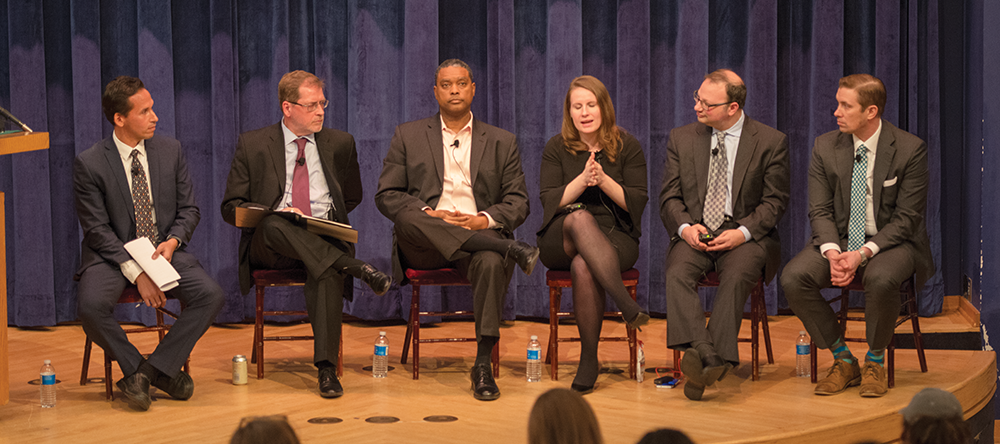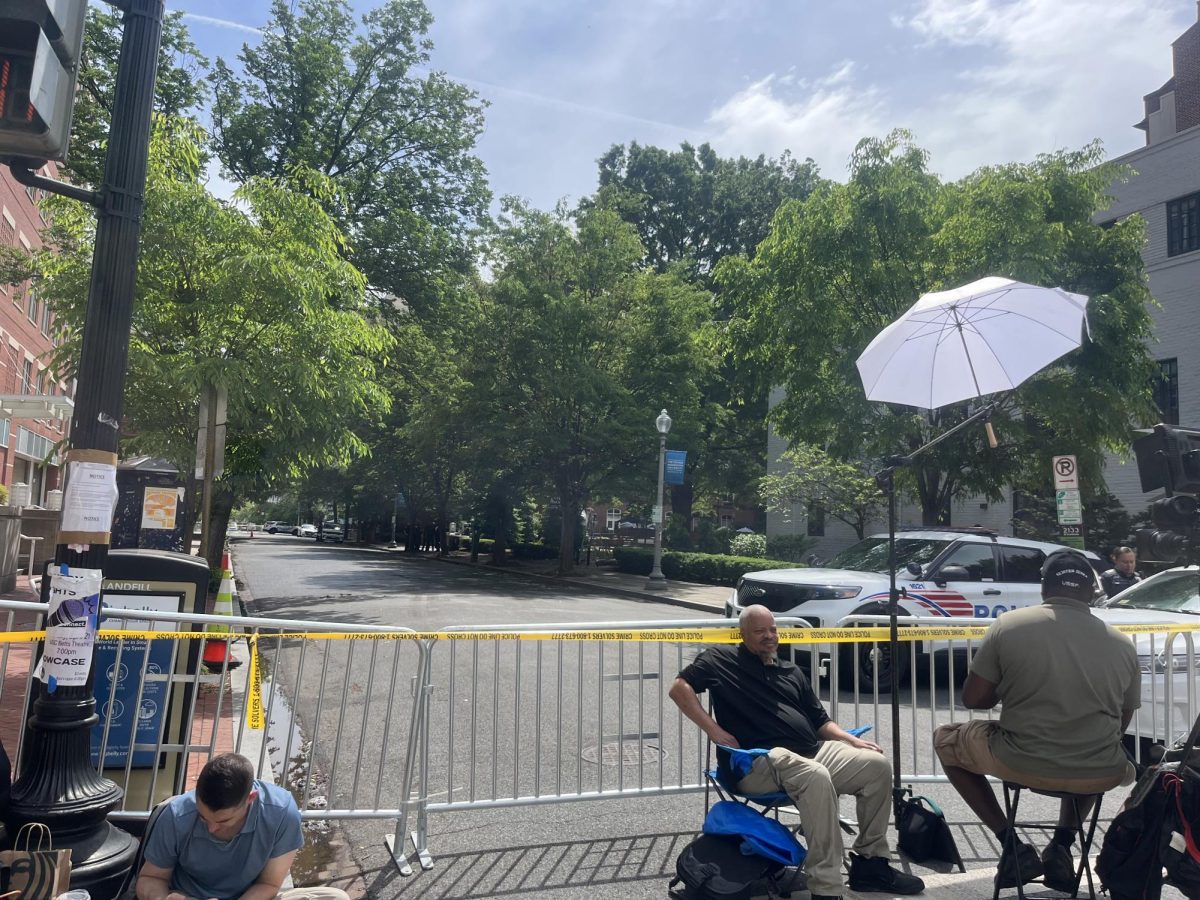The criminal justice system must be reformed at the state level through increased education programming for prisoners and less harsh penalties for minor crimes, a panel of conservative criminal justice advocates said at an event Tuesday evening.
The panel, hosted by the Prisons and Justice Initiative, featured Grover Norquist, president of Americans for Tax Reform; Gerard Robinson, executive director of the Center for Advancing Opportunity; Shon Hopwood, associate professor at Georgetown University Law Center; Heather Rice-Minus, vice president of government affairs at Prison Fellowship; and Marc Levin, vice president of criminal justice policy at the Texas Public Policy Foundation.
The event was moderated by Georgetown University government professor and Director of the Prisons and Justice Initiative Marc Howard and featured a discussion on the role of bipartisan coalitions in reforming the U.S. prison system.
Panelists at the event discussed prison system reforms that would reduce prison populations and recidivism, including reforming mandatory minimum sentencing guidelines. Hogwood said mandatory minimums, which require judges to impose sentences of a set length for crimes that may be minor, lead to a vicious cycle of imprisonment.
“Mandatory minimums are not going to solve any problems with crime,” Hopwood said. “You can reduce the number of people in prison, and crime will still go down. We can’t solve crime by just locking up more people.”

Hopwood emphasized the need to address recidivism, the tendency of convicted criminals to reoffend after leaving prison, which he said often occurs as a result of mandatory minimums.
“On the one hand, we say we put people in corrections,” Hopwood said. “On the other hand, our recidivism rate now ranges from 40 percent up to 75 percent. How many government programs do you know where they fail three out of four times, and they just keep plugging along?”
Norquist echoed Hopwood’s point, saying that after people are sent to prison for minor offenses or offenses they may not have committed, they are more likely they stay in the prison system for years after.
“The more innocent people you send to prison, the more nonthreatening people you send to prison, the less likely they are to come back,” Norquist said. “They didn’t want to commit another crime anyway — because they either didn’t commit the crime or they did something that they’re not going to do again.”
To address the recidivism cycle, the panelists advocated for increased education and social programs within prisons, led primarily by the private sector. These reforms transcend partisan lines, according to Robinson, as they are aimed at trying to assist all individuals in the prison system and are not directed at a particular group.
“I am equally committed to the idea that education makes sense for criminal justice reform,” Robinson said. “It’s not the left wing or the right wing; what we’re trying to do is give people wings to fly away from situations that do not work and land in situations that do. The government should have a role, but there is surely a need for private-sector and for faith-based communities to come in place.”
Rice-Minus works with Prison Fellowship, a Christian nonprofit that includes educating prisoners through a program called “The Academy.” Implemented in 78 prisons and 26 states, the program provides prisoners with financial literacy tutoring and parenting skills.
“Our graduates from our programs have shown drastic drops in recidivism rates,” Rice-Minus said. “We want a more constructive prison culture; we want people to reflect the social norms that we want to see when they get out.”
To refocus the purpose of the criminal justice system to assist prisoners and increase social programs, Levin and Rice-Minus both proposed integrating restorative justice approaches within prisons, which emphasize reforming prisoners rather than punishing them. They noted the importance of imprisoning people who pose a threat to society, but also the need to reduce arbitrary or unnecessary arrests.
“We have to lock up the people we’re afraid of, not the ones that we’re mad at,” Levin said. “We have incarcerated so many people for low-level drug offenses in which people could pay restitution. One of the things we support is restorative justice approach, as a form of mediation.”
Rice-Minus explained the potential opportunity for mediation between the victim and the offender as a way to address the root cause of conflicts.
“Crime, at the heart of it, is about the breaking of relationships, not the breaking of the law,” Rice-Minus said. “It’s about what happens between the person who was harmed and the person who was responsible, and the community it impacted.”
Despite the potential for reform, the panelists expressed little faith in the ability of the federal government to seriously change the criminal justice system because of a lack of resources and incentive.
“I would love to see meaningful federal prison reform happen, but I don’t see it happening,” Hopwood said. “The core of [the proposed reform] is right: The core of it is to rehabilitate people and incentivize them by getting them out of prison early — the problem is the implementation.”




















